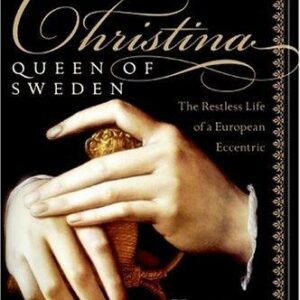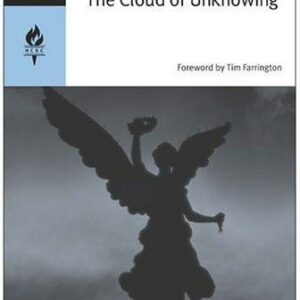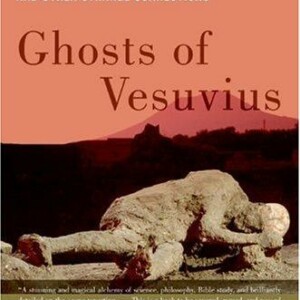The History of Philosophy
$20.00
| Title | Range | Discount |
|---|---|---|
| Trade Discount | 5 + | 25% |
- Description
- Additional information
Description
“A witty, learned, authoritative survey of philosophical thought.” —The New York Times Book Review
The first authoritative and accessible single-volume history of philosophy to cover both Western and Eastern traditions, from one of the world’s most eminent thinkers
The story of philosophy is an epic tale, spanning civilizations and continents. It explores some of the most creative minds in history. But not since the long-popular classic by Bertrand Russell, A History of Western Philosophy, published in 1945, has there been a comprehensive and entertaining single-volume history of this great, intellectual, world-shaping journey.
With characteristic clarity and elegance, A. C. Grayling takes the reader from the age of the Buddha, Confucius, and Socrates through Christianity’s capture of the European mind, from the Renaissance and Enlightenment on to Mill, Nietzsche, Sartre and, finally, philosophy today. Surveying in tandem the great philosophical traditions of India, China, and the Persian-Arabic world, and astonishing in its range and accessibility, Grayling’s The History of Philosophy is destined to be a landmark work.“[A] highly readable narrative . . . lively. . . For a book that covers more than 100 individual thinkers spanning 2,500 years, the level of both detail and accuracy is admirable.” —Wall Street Journal
“The History of Philosophy isn’t just worth buying; it’s worth scribbling in and dog-earing. For a work of scholarship, there can be no higher praise.” —Michael Dirda, Washington Post
“Grayling offers a witty, learned, authoritative survey of philosophical thought in both the Western and Eastern traditions.”—The New York Times Book Review
“A capacious and stimulating chronicle of philosophical endeavor.”—Booklist, starred review
“Grayling presents an impressive, comprehensive catalogue of great thought and thinkers in this sweeping survey […] Perhaps Grayling’s greatest strength lies in his ability to categorize, contrast, and clarify complex ideas, such as Plato’s theory of forms and Kant’s categorical imperative. Elegant, clear, and precise […] Grayling’s superb work is an indispensable resource for any “serious student of ideas.”—Publishers Weekly, starred review
“Grayling offers a remarkably comprehensive history of philosophy from ancient Greece to the present. He covers not only Western philosophy but Indian, Chinese, Arabic-Persian, and African philosophy as well, and his skill as an expositor is apparent [ . . . ] This work will interest readers of philosophy and intellectual history. It aims at general audiences, but scholars will also find it valuable.”—Library Journal, starred review
“A magnificent recapping of the history of philosophy, as it stands apart from theology, in the classic model of Bertrand Russell, as ‘an invitation and an entrance’ … [I]t is a delight to engage in this sweeping history of the great thinkers throughout the ages, from pre-Socratics to the present….Grayling’s accessible omnibus will provide a stepping stone for the student or novice.”—Kirkus Reviews
A triumph–miracle?–of clarity, scholarly authority, and suave concision. I especially appreciated how Grayling, himself a philosopher of note, intrepidly takes the story right down to the present day, giving us a brisk and masterly survey of contemporary figures ranging from Quine and Kripke to Deleuze and Derrida.” – Jim Holt, author of Why Does the World Exist?
“A.C. Grayling loved writing The History of Philosophy—and it shows. To revalue the ideas of the past, to insist that these ideas have origins and histories, to explain how these histories arise in deeply human practices and concerns: this landmark book is an antidote for a culture intent on forgetting, and in some cases destroying, its intellectual inheritance. It is easy to confuse the narrow concerns of the present with the genuinely important. Grayling offers a reminder: philosophy endures and its past is not distant. Indeed, it will continue to have its way with us.” – John Kaag, author of Hiking with Nietzsche: On Becoming Who You Are
“Grayling has written a masterful and often entertaining chronicle of the epic intellectual journey we humans have taken, in different periods, countries and cultures, to understand ourselves, our world, and how we ought to live. An extraordinary accomplishment that transcends the usual bounds of academic specialization.” – Peter Singer, Ira W. DeCamp Professor of Bioethics, Princeton University
“Updating Bertrand Russell for the 21st century… a cerebrally enjoyable survey, written with great clarity and touches of wit… The non-western section throws up some fascinating revelations.” – The Sunday Times (UK)
“Weighty and witty… Sharp and colloquial… Grayling exudes great love for his subject, and a desire that readers, philosophers or not, should love it too – a desire that is bound to be aptly realized.” – The Daily Telegraph (UK)
Professor A. C. Grayling is master of the New College of the Humanities, and a supernumerary fellow of St Anne’s College, Oxford. He has written and edited over thirty books on philosophy and other subjects, and has written on non-Western philosophy. For several years, he wrote columns for The Guardian newspaper and The Times (London), and was the chairman of the 2014 Man Booker Prize.
Philosophy before Plato
There is a wall standing between us and the world of antiquity: the period of the decline and fall of the Roman Empire and the rise to dominance of Christianity. Edward Gibbon connected the two phenomena, blaming the former on the latter. He is in significant part right. Remember that in 313 ce the Emperor Constantine gave Christianity legal status and protection by the Edict of Milan, and not long afterwards, in 380 ce, the Emperor Theodosius i decreed by the Edict of Thessalonica that Christianity was to be the official religion of the Empire, outlawing others. The change brought rapid results. From the fourth century of the Common Era (ce, formerly cited as ad) onwards a vast amount of the literature and material culture of antiquity was lost, a great deal of it purposefully destroyed. Christian zealots smashed statues and temples, defaced paintings and burned ‘pagan’ books, in an orgy of effacement of previous culture that lasted for several centuries. It has been estimated that as much as 90 per cent of the literature of antiquity perished in the onslaught.The Christians took the fallen stones of temples to build their churches, and over-wrote the manuscripts of the philosophers and poets with their scripture texts. It is hard to comprehend, still less to forgive, the immense loss of literature, philosophy, history and general culture this represented. Moreover, at the time Christianity existed in a number of mutually hostile and competing versions, and the effort – eventually successful – to achieve a degree of consensus on a ‘right’ version required treating the others as heresies and aberrations requiring suppression, including violent suppression.
In its assault on the past Christianity had help from others with a similar lack of interest in high classical civilization: Huns, Goths, Visigoths and others – the ‘barbarians’ – whose migrations and invasions into the ever-weakening Roman Empire hastened its collapse. The shrinking of mental and cultural life was both a cause and an effect of diminishing education; fewer books were written and published, prohibitions were imposed on what could be read and discussed, and the predictable consequences of such circumstances followed in the form of increasing ignorance and narrowness. Christianity congratulates itself on the fact that the preservation of fragments of classical literature which managed to scrape through this period of appalling destruction was the achievement of monks, in later centuries, copying some of the manuscripts that survived; and although this was a merely partial, belated and inadequate response to the wanton zealotry of the earlier faithful, one must be grateful even for that.
As one would expect, only those texts regarded as most significant and outstanding, by individuals themselves thus regarded, managed to survive – and even so, much of the work of some of the greatest figures perished. Only think: Aristophanes was one of a large number of playwrights in fifth- and fourth-century bce (‘Before the Common Era’) Athens. From quotations and allusions we know the names of about 170 other comic playwrights and 1,483 titles of their plays. All are lost; just eleven out of more than forty of Aristophanes’ own works survive. We have only seven plays by the tragedian Aeschylus out of seventy whose titles we know. Imagine if, of the thirty-six plays printed in the First Folio of Shakespeare’s works (we know of at least one lost play, Cardenio, said to have been co-written with John Fletcher), only four were still extant. If we knew the titles of the other thirty-two, what a mighty speculation they would prompt. Imagine if our remoter descendants had just four of Shakespeare’s plays, no Cervantes or Goethe but only their names and reputations, a fragment or two of Schiller, no Jane Austen or George Eliot but again just admiring mention of them, a few quotations in others’ works from Marx, one leg from Michelangelo’s David, one copy of a copy of a Poussin painting, a single poem by Baudelaire, just a few lines of Keats, and so on – scraps and remnants, and not always from the best of their time; this is how things in fact stand with regard to classical and Hellenic antiquity. (And consider: by the accidents and ravages of history the future might indeed have little more to offer its inhabitants than this.) It is an irony perhaps that it was people associated with another oriental religion – Islam – which, a couple of centuries later, also irrupted into the classical world (or rather, into what was by then the carcass of the classical world), who saved some of that carcass’s legacy from oblivion.
As these thoughts tell us, what we know of Plato’s predecessors in philosophy – they are conventionally known as ‘Presocratic philosophers’ even though some of them were contemporaries of Socrates – has come to us in shreds and patches. There are two kinds of sources for our knowledge of them: fragments, which are quotations from them in the writings of later commentators, and testimonia, which are reports, paraphrases or summaries given by later writers. The scholarly task of identifying and collating this evidence is known as ‘doxography’. The term ‘doxographer’ is also applied to those individuals in ancient times who preserved scraps of the Presocratics’ writings or views by quoting or reporting them.
Plato and Aristotle both summarized and quoted Presocratic thinkers – sometimes inaccurately, which well illustrates how careful doxography has to be, given that even these giants could get it wrong. Aristotle is indeed a major source of our knowledge of the Presocratics, because he discussed them often and had three of his students, Eudemus, Meno and Theophrastus, write treatises on various of them. Meno concentrated on their medical writings, while Eudemus wrote about their mathematics and astronomy. Only a few traces of the resulting books survive, as quotations and summaries in the work of yet later writers. Theophrastus discussed the Presocratics’ theories of perception in his On Sensation and their science in his Tenets of Natural Philosophy. A few sections of the first book survive; only the title of the latter remains.
Aristotle and his students were writing about thinkers some of whom lived two hundred years before their time. The next important source is Cicero, writing two hundred years after Aristotle’s time, in the first century bce. Thus already the thread was growing longer and thinner – the thread of memory and transmission of sources (manuscript copies following earlier manuscript copies, with mistakes creeping in). Cicero was a serious student of philosophy who sought to inform his Roman contemporaries about Greek thought. But by his time the first age of philosophical genius had passed, and in the centuries that followed other causes of inaccuracy entered the picture, not least polemics – as in the writings of Clement of Alexandria in the second century ce, whose comparisons between Christian thought and Greek philosophy were not designed to favour the latter. Nevertheless he quotes some of the Presocratics, adding to the doxographical store.
The second century ce in fact offers a fairly rich harvest for doxography. The sceptic philosopher Sextus Empiricus quoted extensively from the Presocratics on knowledge and perception, while Plutarch’s Moralia quotes them on a wider range of topics. An anonymous work of the same period called the Placita (‘Opinions’) does the same. This book was originally thought to be by Plutarch, so for convenience its unknown author is called ‘pseudo-Plutarch’. Later that century Alexander of Aphrodisias quoted a number of Presocratics in his commentary on Aristotle.
In the early third century ce Bishop Hippolytus of Rome wrote a Refutation of All Heresies arguing that Christian heresies arose from Greek philosophy, in the process quoting extensively from the Greek philosophical tradition in order to refute it, thus paradoxically preserving the views he sought to demolish.
One of the most useful sources for the history of Greek philosophy is The Lives of the Philosophers by Diogenes Laertius, written in the third century ce. It is an informative and entertaining work, though again not always accurate. It also sometimes, perhaps indeed too often, relies on legend and hearsay, which tempers its value; but nevertheless its value is great. In addition to summaries of biographies and views it gives a bibliography of philosophical works, demonstrating yet again how much has been lost.
There was an earlier text, of course lost, on which the Placita drew, which later served as a source for the ‘Selections on Natural Philosophy’ of John Stobaeus in the fifth century ce. That earlier text is attributed to Aetius, who lived around 100 ce, and who is thought to have himself used Theophrastus’ book. Another important fifth-century source is Proclus, one of the last heads of the academy Plato had founded nine centuries before. Plato’s Academy (the ‘School of Athens’) was closed by the Emperor Justinian in 529 ce, along with a general ban on the teaching of philosophy because it conflicted with Christianity.
A very important doxographical source, for all that it dates from a thousand years after the beginning of Presocratic philosophy, is the writings of Simplicius in the sixth century ce. In his commentary on Aristotle’s Physics Book i he quotes a number of the more important Presocratics, in some cases thus serving as the only source of information we have about their views. Significantly, he says that his reason for quoting so extensively from one of them, namely Parmenides, giving more of the text than was necessary for his argument, was that copies of Parmenides’ work were extremely rare and difficult to find, so he felt the need to preserve some of it.
These are the major sources, but not the only ones. Scattered here and there in other writings are mentions, anecdotes and tidbits which the fine net of doxographic scholarship has trawled up. They come, for some examples, from what remains of the writings of Agathemerus the geographer of the third century bce, the Chronicles of Apollodorus of Athens, written in the second century bce, the book On Birthdays by the Roman grammarian Censorinus in the third century ce, and others.
As already noted, neither the fragments nor – perhaps even more so – the testimonia can be regarded as completely reliable. Apart from their brief and scanty nature, they were quoted or reported by writers with their own agendas in mind, sometimes hostile to the views of the philosopher being quoted or paraphrased. Questions of language, interpretation, context and relationship to other fragments pose difficulties for understanding what was really meant by the fragment or reported view. This caveat has to be borne in mind.
As a result of the great scholarly achievements of the nineteenth century, when the study of the doxographical sources benefited from advances in philology (the study of language in historical texts), a story of early philosophy emerged which quickly assumed the status of orthodoxy. More recent scholarship, including the discovery of texts like the Strasbourg Papyrus with previously unknown lines by Empedocles, and the Derveni Papyrus containing philosophical quotations among Orphic hymns, complicates the neat picture that the orthodoxy gives, and throws some of it into question. However in its broad outlines the orthodox story is a good starting guide; the detailed refinements and criticism of recent scholarship make better sense if one knows what it is adjusting.
That orthodox story goes as follows.
The Presocratic Philosophers
The Presocratics were given this name by the aforementioned nineteenth-century scholars not because all of them predated Socrates – some were his contemporaries – but because the scholars recognized a significant difference of interest between them and Socrates. This is that the Presocratics were concerned with questions about the nature and origins of the world, whereas Socrates focused his attention on ethics. Accordingly the scholars, following Aristotle’s name for them, described the Presocratics as phusikoi – physicists.
Before giving an account of each of the major figures individually, it is useful to see where they fit in the first millennium of philosophy.
The first of the phusikoi came not from Athens but from Ionia, a flourishing group of cities originally founded by Athenians on the eastern shores of the Aegean Sea. One of the cities, Miletus, was home to Thales, regarded by the Greeks themselves, and by all historians of philosophy since, as ‘the Father of Philosophy’. Of course he was no such thing; it cannot be the case that in the scores of thousands of years of human history before the sixth century bce no one had speculated about the nature and origins of the universe. Indeed, for several millennia before Thales lived, great civilizations were flourishing in Mesopotamia and along the Nile, possessed of astronomy, architecture, bureaucracy and writing, and based on great cities and organized economies; there must have been many thousands of citizens of these elaborate cultures who pondered philosophical questions. But Thales is the first person we definitely know of who wondered about the nature and origins of the universe, and not only wondered, but put forward ideas about them which are distinctively philosophical rather than religious or mythological in character. More on this shortly, because it is indeed a significant matter.
We do not know Thales’ dates of birth and death but we do know that he was said to have predicted an eclipse that took place in 585 bce, so this date is taken as roughly the midpoint of his life – his floruit (‘he flourished’). The traditional way of viewing the history of early philosophy is to connect the members of a geographical ‘school’ of thought as if they were members of a real school, with pupil following teacher. This might be right, and I think probably was, even if sometimes a figure identified as someone’s pupil might more accurately be described as a follower or as a younger colleague. In any event, history gives Thales a pupil, Anaximander, who likewise had a pupil, Anaximenes, and these three are bracketed together as the first Ionian philosophers.
Whereas Thales and his Ionian successors lived on the eastern margin of the Greek world, the next significant steps in the story were taken on its western margin, in the Greek colonies of southern Italy. Pythagoras – he of the theorem about the square on the hypotenuse – in fact came from Ionia originally, but transplanted himself to Croton on the heel of Italy. The city of Elea, not far from Croton, was the birthplace of a towering figure in early philosophy, Parmenides; the adjective ‘Eleatic’ is therefore applied to him and to the school of philosophy he founded, his principal followers being Zeno and Melissus. Contemporary with Zeno was Empedocles, from Acragas in Sicily.
Parmenides is one of the two greatest of Presocratic philosophers; the other is Heraclitus, whose birthplace was back across the Greek world in Ionia. Towards the end of their lives – Heraclitus was slightly the older of the two; Parmenides was still alive when Socrates was born in 470 bce – the seat of philosophy became, and for several centuries thereafter almost exclusively remained, Athens. Athens saw, apart from Socrates himself, the flourishing of Protagoras, the sophists, the atomists Leucippus and Democritus, and then Plato and Aristotle; and after the latter the schools of Epicurus, the Cynics and the Stoics.
US
Additional information
| Weight | 19 oz |
|---|---|
| Dimensions | 1.4000 × 5.4500 × 8.3900 in |
| Imprint | |
| Format | |
| ISBN-13 | |
| Author | |
| Audience | |
| BISAC | |
| Subjects | gifts for history buffs, ideas, ethics, essay, trivia, enlightenment, reference, language, pop culture, essays, history gifts, world history, historical books, history buff gifts, history lovers gifts, history teacher gifts, philosophy books, philosophy book, history of philosophy, PHI031000, philosophy of history, classic, philosophy, self improvement, culture, psychology, spirituality, self help, buddhism, education, writing, biography, history, comedy, society, school, Sociology, political science, french, collection, HIS037000, history books |











